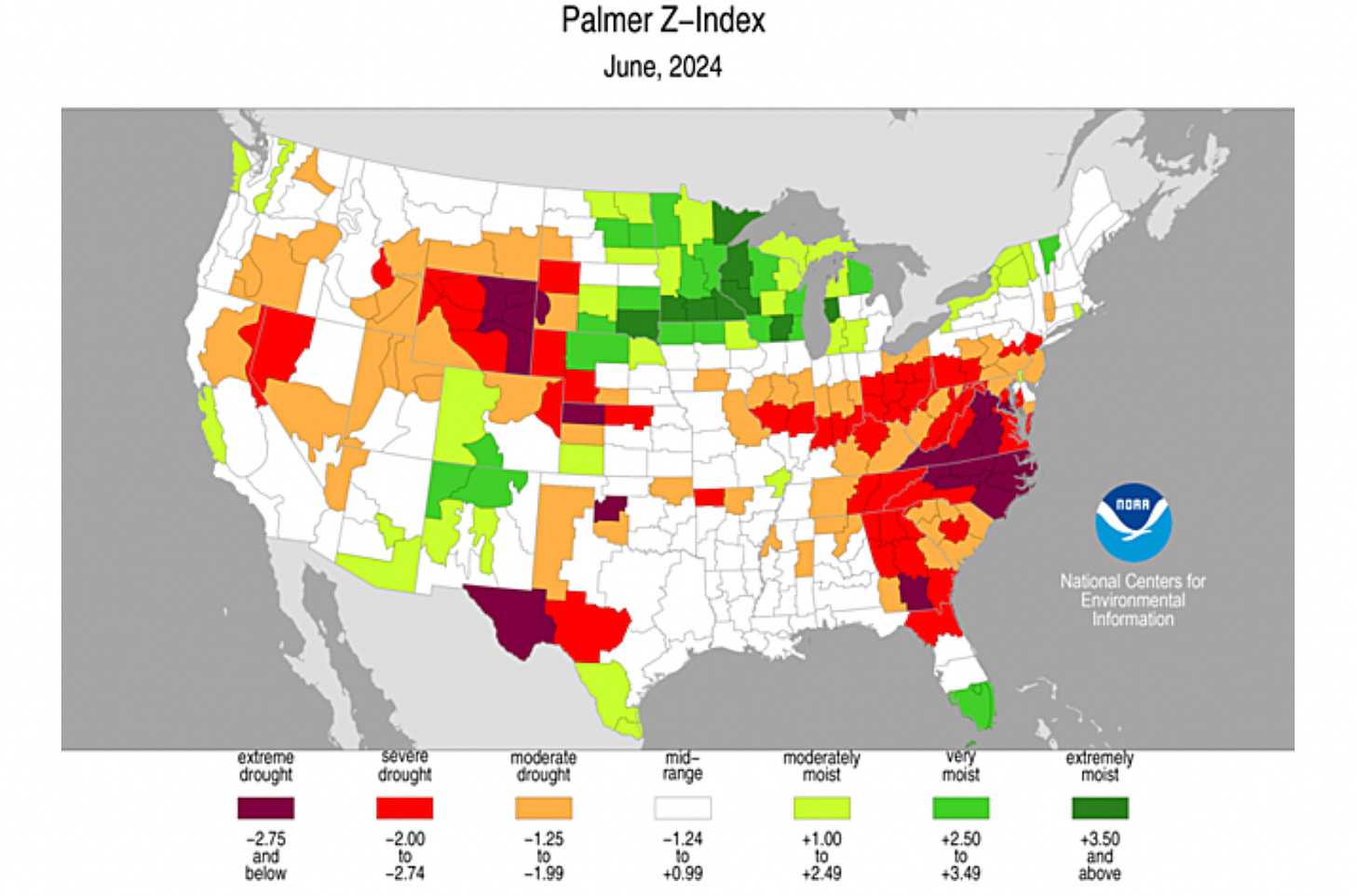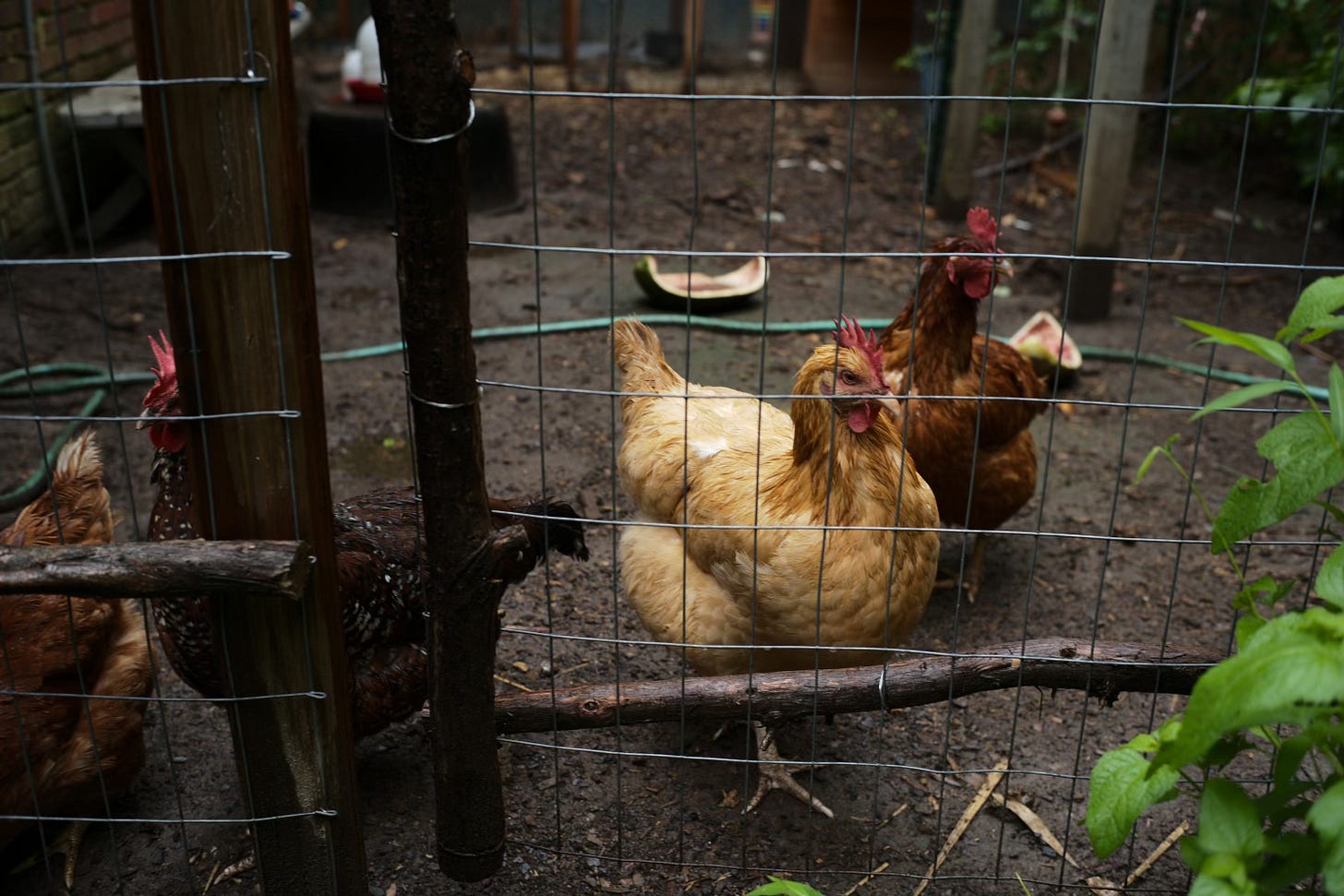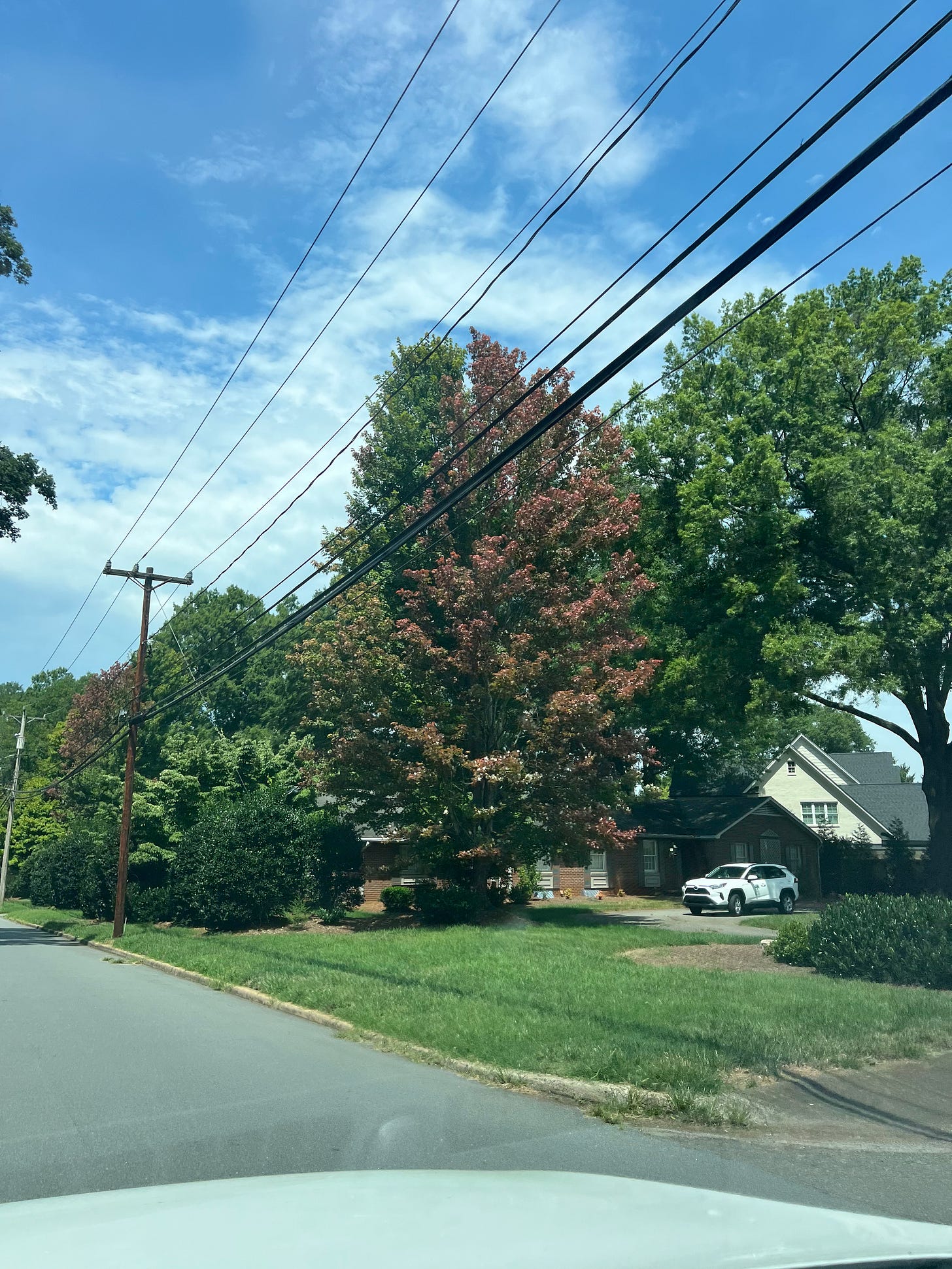One of the more comforting parts of this career is going to half a dozen homes every week to see what is happening to their plants. And one of the more annoying parts is being absolutely utterly unable to stop scanning every single residential and commercial landscape situation while I drive even to the grocery store.
This year has turned me into our local ‘The Gardening Observer’ and I am authoring this issue to say that no, it’s not you, or anything you’ve done wrong.
It’s been a terrible year for gardening, for landscapes, and in general, for plants.
If you have walked outside and been shocked to see a shrub or tree die overnight, join the club. If established plants that have never shown stress are suddenly hanging on by a thread, other homes have it worse. If you planted a large flower bed last year and absolutely nothing has gotten bigger this year — this is happening nearly everywhere.
My headlines from around town:
🗞 Look At These Dinky Dahlias
🗞 Spring Gardens Never Sprung
🗞 Damn Look At All These Aphids
🗞 50/50 Chance of Hydrangeas
🗞 LOL @ Grass
🗞 Oh No The Ostrich Ferns
🗞 Just Ignore Those Flower Pots
🗞 Basil Is Brat
Some Stats To Help You Feel Better (And Also Worse)
Here in Winston Salem, NC, our last frost typically happens in May around Mother’s Day. This year, our last frost was nearly 3 months early, on February 25th. By March 31st, we had already hit 81°.
We were in the 70s and 80s when we were supposed to be having frosts.
April felt like a summer month rather than spring — indeed, we were 12° above average.
In May, we were consistently reaching upper 80s, which is VERY hard on plants that are expecting frosts or 40° nights — especially when we received absolutely no rain in April to set them up for resilience.
Does June feel more recent? Remember when it hit 100°? Our average temperature in June was 86° and often reaching high 90s with zero rain — a full ten degrees higher than normal, with also nary a day of rain.
It’s important to note I am writing about the South East. (Iowa is getting so much rain that in May there were only TWO days suitable for farmers to work in their fields. 350% more rain than normal with 30 tornadoes in one month, to be exact.) In the way it’s comforting to swap stories with a shitty ex’s ex, at least I’ve felt validated to know these stats and visualize that we are in fact in ~ unprecedented times. ~
Lastly, did you miss this headline in July? I was trying to visit Atlanta’s Botanical Garden that day and we didn’t last more than 20 minutes.
Ugh.
How To Manage Extreme Heat & Drought
It is important to remember that plants live outdoors 100% of the time, and only half of their “body” is above ground, touching the air. This is silly, but easy to forget.
High nighttime temperatures or hot soil temps can have a worse affect on plant health than just daytime temperatures.
Keeping your soil cool and moist is a key strategy. Easier said than done.
If mulch has worn thin around the base of a plant, you can assume the temperature of the soil has gotten too high for that plant in the summer - especially if it’s in direct sunlight. To illustrate, farmland soil consistently holds at around 150° in summer months lately, even when ambient temps are in the 90s. Each 18° increase in soil temperature doubles the rate of a plant’s respiration and water loss.
[This is why it’s extremely hard to answer the question How Often Should I Water]
In the future, you should work to avoid bare soil or even just large areas of mulch in direct sunlight. Ground covers and dense plantings will help protect the ground from receiving harsh sun rays and absorbing and holding heat.
I am an enthusiastic advocate for anything that makes gardens naturally resilient. These tactics primarily are:
Increasing organic matter in soil [leaf mulch in winter, bags of Daddy Pete’s chicken manure]
Using heavy mulch and/or ground covers
Xeriscaping or choosing drought tolerant plants
Adding mycorrhizal fungi to soil which dramatically increases drought tolerance ability of most plants
Planting trees on the west side of gardens to provide afternoon shade
…but as a realist, I find it hard to imagine a future where irrigation is not critical for many gardens.
I no longer install gardens without irrigation after this year. It’s too risky, too expensive not to. Plus, the growth rate of a plant on irrigation does not even compare to a plant relying on rainfall. If you’ve been on the fence, plan to put it in next spring.
Okay, the important sciency part:
Plants breathe through their leaves. When roots realize the soil is dry, the roots send signals to the leaves to stop breathing so that water cannot escape! This is an amazing preservation tactic and is exactly how a plant navigates dry days or weeks.
HOWEVER, transpiration is also how plants cool themselves when they’re too warm — just like us, they sweat!
If the stomata [air holes; leaves are like exposed lungs] remain closed for long periods of time to try to preserve water, the plant is unable to cool itself and can quickly reach its ‘thermal death threshold.’ 💀
This is likely what is causing ‘overnight’ deaths of plants that have been fine for years. Plants can survive dry conditions with normal temps, and they can often survive high temps with enough water and cool soil — but our ongoing combo is lethal.
In addition, plants continue to ‘respire’ at night — they break down their food/nutrients into energy to grow. Cool nighttime temps slows down this process, which is ideal. During hot nights, respiration speeds up, causing plants to accidentally lose way too much of their nutrient reserves, starving them. Most of our plants have been starving and suffocating this year, which is why they have not grown or been way more susceptible to disease or pest.
fun fact:
when a plant is stressed, it releases stress hormones into the air that pests can ‘smell.’ just like us, stress is the root of most of our problems. healthy plants = resistant to pests or disease. stress = sick.
if your plants are sick, make sure you identify the source of their stress in addition to treating the immediate problem.
What To Expect For The Remainder of 2024
I don’t have a crystal ball, but we do know some things.
Prolonged hot temps speed up reproductive processes, which means:
Less nuts / smaller nuts on trees
Less likelihood of garden flowers self-seeding
Veggies & herbs bolting faster and earlier
More vulnerable buds on shrubs that bloom on old wood, like azaleas, rhododendrons, lacecap/endless summer/oakleaf hydrangeas.
Historically more likely to have extreme rain events later in the year
The one thing I don’t have research on is leaves changing early, but I’ve seen trees turning all over town for weeks now 😱, with cherries already dropping their leaves. I personally would not be surprised to see leaves changing by the end of this month.
Why Did I Write This Bummer Newsletter?
Gardens are a collaborative effort with nature. Some poets say it’s what happens when you create art with God, the divine mother, or whatever we call her.
Even when earth experienced more stable weather patterns, having a hand in controlling growing things has prompted everything that love requires: Learning, Failure, Curiosity, Attentiveness, Joy, Expectation, Disappointment, Peace, and my favorite, ‘Now That We’ve Done This, Next Year Will Be Amazing.’
Most of us are lucky to sit and sleep indoors in air conditioning for the better part of our lives, only noting the heat when we walk to our cars or have a patio dinner party in the evening.
To know the state of The Other Artist in our gardens cannot be ignored. The more we know her, take note of her, and hear her, the better artists we are ourselves. We have always been in a partnership with earth and ignoring her is how we landed in this state.
To see her in her full form day in and day out, or to read others who write about her activities when we are indoors and unable to meet her — this is our daily activism and our daily love.
To understand that there are forces greater than ourselves provides relief when we point the finger of failure inward. To be reminded that how we vote is not just about our morality, our economy, our wars — but about our gardens — provides relief when we grow fatigued from the polarity of the news.
August Garden Club
This month’s garden club is Wednesday, August 7th at 7pm EST.
We will be talking specifically about heat management and planning for fall gardens.
I will be sharing some drought tolerant plants I recommend, as well as answering any questions about irrigation or your personal spaces you may have. If you have problems you want looked at, show up to Club with photos!
Until next time,
Lauren
“Gardening is full of mistakes, almost all of them pleasant and some of them actually instructive.” —Henry Mitchell











Thank you for such a helpful newsletter. It has been an exhausting and overwhelming garden season but such a great learning period. I have been quite humbled everyday. This info is great.